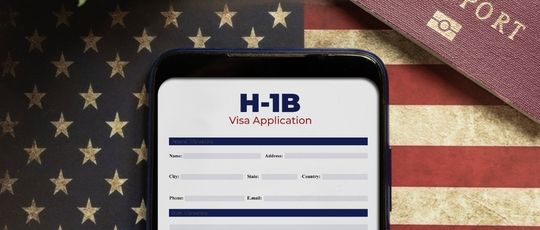- Mastercard Settles Pay Discrimination Lawsuit for $26 Million
- DOL Announces Voluntary Fiduciary Correction Program Updates
- Meta, Amazon Scale Back Diversity Programs
- Toyota Calls Salaried Workers Back to the Office Four Days a Week
- Vermont Requires Employers Without a 401(k) to Enroll Workers in New Program
Mastercard Settles Pay Discrimination Lawsuit for $26 Million
As reported by the New York Times, Mastercard has agreed to pay $26 million to settle a proposed class action that accused the company of underpaying thousands of female, Black and Hispanic employees.
If approved by the U.S. District Court for the Southern District of New York, Mastercard will resolve claims that the company underpaid 7,500 employees across the country starting in 2016. The company also agreed to conduct annual pay equity audits for three years and hire an industrial psychologist to assess bias in its workplace.
Mastercard, the second-largest U.S. credit card provider, “disputed the allegations and did not admit to wrongdoing as part of the settlement,” according to a release.
DOL Announces Voluntary Fiduciary Correction Program Updates
The U.S. Department of Labor announced on Tuesday, Jan. 14 that its Employee Benefits Security Administration (EBSA) will update its Voluntary Fiduciary Correction Program, providing employers and other plan officials with more efficient ways to voluntarily correct compliance issues in retirement, health and other employee benefit plans.
The most significant change is a self-correction tool that employers and other plan officials can use to remedy delays in sending participant contributions, such as employee payroll deductions, and participant loan repayments to retirement plans.
The update also:
- Expands the scope of transactions eligible for correction.
- Clarifies transactions that are already eligible for correction.
- Simplifies administrative and procedural requirements.
- Amends the Voluntary Fiduciary Correction Program class exemption, Prohibited Transaction Exemption 2002-51, so plan officials can avoid the imposition of excise taxes.
These updates will take effect on March 17.
Meta, Amazon Scale Back Diversity Programs
Facebook owner Meta Platforms and online retailer Amazon.com are joining the growing list of American companies scaling back their diversity initiatives.
According to Reuters, Meta is ending its diversity, equity and inclusion (DEI) programs, including those for hiring, training and picking suppliers. Meta will also no longer have a dedicated team focused on DEI. Chief diversity officer Maxine Williams will be taking on a new role focused on accessibility and engagement.
Amazon.com is “winding down outdated programs and materials” related to representation and inclusion, aiming to complete the process by the end of 2024, as seen in a December memo.
Janelle Gale, vice president of human resources at Meta, cited in a memo recent Supreme Court decisions will affect how the company approaches DEI programs going forward.
“The term ‘DEI’ has also become charged, in part because it is understood by some as a practice that suggests preferential treatment of some groups over others,” Gale wrote.
Toyota Calls Salaried Workers Back to the Office Four Days a Week
Toyota Motor Corp. is ordering salaried workers in North America back to the office Monday through Thursday starting in September, according to a Bloomberg report.
The requirement will apply to employees at all job levels at Toyota Motor North America and Toyota Financial Services, including temporary and contingent staff, and those who have moved away from company locations. Toyota’s factory workers have already been working onsite five days or more a week.
In a memo, Toyota said staff can continue to work from home on Fridays “subject to business needs,” but warned failure to comply could lead to “termination of employment.”
Vermont Requires Employers Without a 401(k) to Enroll Workers in New Program
Vermont recently joined 16 other states in requiring employers to either enroll employees in a state-run retirement plan or offer their own 401(k) plan. The Vermont program, called Vermont Saves, is a state-run, automated, Roth IRA-style savings plan in which participating workers can earmark up to $7,000 per year and have it automatically deducted from their paycheck.
More than 45% of Vermont employers currently do not offer retirement benefits. With the program’s initiation, employers with five or more employees who do not currently offer their workers a retirement plan will be required to sign up for Vermont Saves by the end of February.
Employees can set their own contribution rate, or use the program default, and can opt out of the program if they choose. Employees can also choose from a menu of investment options, including low-fee target date funds that automatically rebalance over time.
According to state treasurer Mike Pieciak, “Vermont Saves will transform the long-term financial well-being of tens of thousands of Vermonters. We know that employees are 15 times more likely to save for retirement when they have access to a plan, which will help more people have a secure retirement, benefit our economy, and take pressure off our state budget.”
Editor’s Note: Additional Content
For more information and resources related to this article, see the pages below, which offer quick access to all WorldatWork content on these topics:








